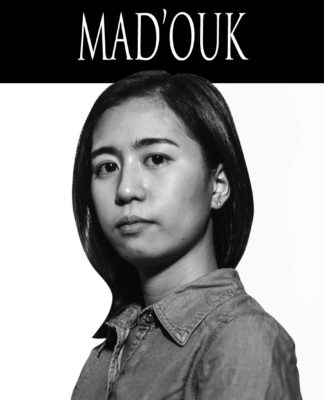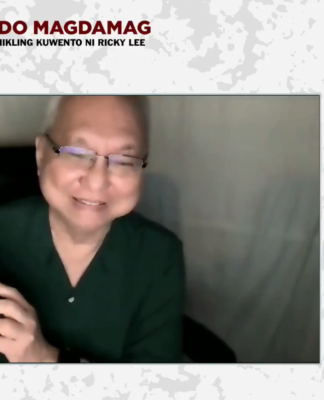Rolando de los Reyes II, said he used to be a promiscuous homosexual, frequented gay clubs, and randomly texted anybody for “eyeball meetings”, he searched for partners in malls. He used to see life as a cycle of short-lived relationships and disappointments. But he got fed up.
“For a while I felt loved, but I did not feel really happy,” De los Reyes told the Varsitarian. He was battling emptiness and depression that even the Singles for Christ (SFC) community, where he was a member, couldn’t fully address.
De los Reyes said that the SFC wanted to help homosexuals but it didn’t know how. Searching through the Internet, he found the website of a fellowship that would finally satisfy the longing he felt.
Courage Apostolate, the first ministry of homosexuals recognized by the Vatican, was launched in 1980 by the late New York Archbishop Terence Cardinal Cooke. Unlike other organizations for homosexuals, Courage Apostolate develops the person’s spirituality and promotes chastity.
Since its establishment and recognition from the Holy See, the organization has grown to 110 chapters in seven countries, including one in the Philippines which was acknowledged by the Archdiocese of Manila in 1995. Fr. Daniel Healy, who is now Courage Philippines’ spiritual director, headed the apostolate back in 1996. After his term, Faculty of Arts and Letters professor Joe Garcia took over.
Garcia came to know of the apostolate through his friend, Father Ben Villote, head of the Center for Migrant Youth in Quezon City. Garcia’s personal confusion and his previous work as a counselor in a private school for boys, where he dealt with issues like homosexuality, prompted him to join the apostolate.
In 1997, Garcia became the president and chairman of Courage Apostolate. Under his supervision, the organization was registered with the Securities and Exchange Commission in 2001. Although Garcia formally stepped down from office last March 31, he remains a counselor for the group. Now, a core committee is managing the ministry of 25 members.
According to him, Filipinos often misunderstand homosexuals. “Homosexual” is the term used for those who are of same-sex orientation while “gays” are those of same-sex orientation and are also living the gay lifestyle, he said. There are also “non-gays” who are of same-sex orientation but who believe that the gay lifestyle is not for them. The apostolate is actually intended for the “non-gays”.
While the Church prohibits homosexuals from entering the priesthood, Garcia clarified that what the Vatican condemns is the gay lifestyle. Courage helps homosexuals from acting on their carnal homosexual desires. The Catholic Church accepts people with homosexual orientation, but discourages homosexual sex acts, since sex must be open to procreation and complementary sexual union, he explained.
Repairing process
A typical Courage meeting consists of confession to the spiritual director and a celebration of the Holy Mass. There are also weekly meetings and one-on-one sessions.
In sessions, the psycho-spiritual approach is used. Garcia said that the reparative therapy uses common counseling techniques like listening, mirroring, and confronting in helping the person gradually change his sexual orientation.
“There are no fixed methods. We adjust to the needs of the person and whatever method is effective, we use it,” Garcia said. “One must have a healthy and intimate but non-sexual relationship.”
The ministry poses a challenge for homosexuals to avoid giving into their same-sex desires. “Living a chaste life is a pursuit, a struggle,” De los Reyes said.
The last time De los Reyes went to a gay club was in 2001. He now avoids magazines, T.V. shows and anything that would stimulate his imagination. He doesn’t watch films in movie houses anymore for fear of sinning again.
Just before the Holy Week, De los Reyes texted people he had homosexual relationships with and asked for their forgiveness. He even told his former partners that he couldn’t continue the friendship with them for now but eventually hopes someday that he could face them and start a whole new friendship.
De los Reyes admits that giving up the gay lifestyle is a process. He says that he can now control his homosexual desires which took a great deal of psycho-spiritual growth. He is now the head of the membership committee and a counselor of the apostolate.
Like De los Reyes, Garcia feels the struggle of living away from the gay lifestyle. He had to reconnect with other men and the basis of his relationship with them was purely on friendship. He has been living a chaste lifestyle. What helps him is focusing his attention in helping others. “I am not fully healed but at least I know better,” he said.
“Change, especially with homosexuals, is like recovery from addiction. There are instances when you feel like reverting to your old self and there are areas in your life that needs to be liberated because they are still captured by the enemy,” De los Reyes said.
Although the organization is yet to be fully accepted by others, Garcia and de los Reyes have high hopes that Courage Phils. will be accepted in a society that discriminates against gays.

















